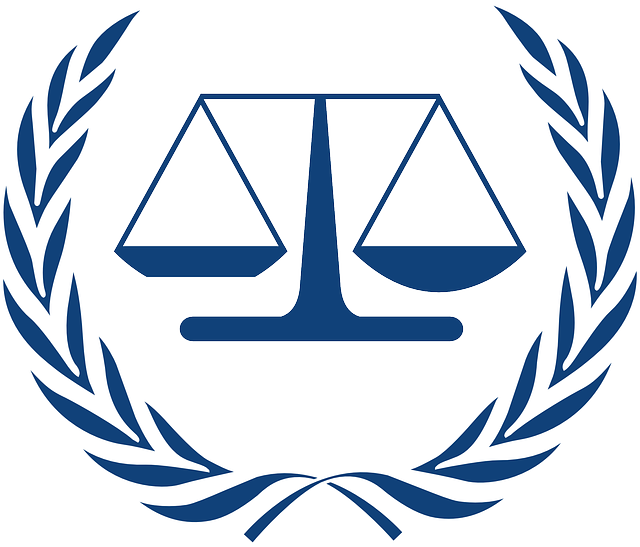Whistleblower Protection Laws (WPLs) are crucial tools for tackling securities fraud, shielding employees from retaliation when exposing illegal activities and fostering transparency within corporations. Specialized lawyers navigate complex regulatory challenges, exposing fraudulent transactions and ensuring accountability under WPLs. A successful lawsuit requires demonstrating whistleblower status, facing retaliation, and overcoming Regulatory Challenges in Securities Fraud Cases. Advancements in WPLs empower employees to fight fraud, with continued collaboration between communities essential for stronger protections against rising regulatory challenges.
“Whistleblower protection lawsuits play a pivotal role in combating securities fraud, empowering individuals to expose illegal activities without fear of retaliation. This article delves into the intricate world of whistleblower protections and their significance in regulatory challenges within the financial sector. We explore how these laws safeguard disclosures, facilitate Securities Fraud Litigation, and foster transparency.
By understanding the key elements of a successful lawsuit, we can assess the impact and future prospects of whistleblower protections, highlighting their game-changing potential in navigating complex regulatory landscapes.”
- Understanding Whistleblower Protection Laws and Their Relevance in Securities Fraud Cases
- Navigating Regulatory Challenges: A Deep Dive into Securities Fraud Litigation
- Key Elements of a Successful Whistleblower Protection Lawsuit
- The Impact and Future of Whistleblower Protections in the Financial Sector
Understanding Whistleblower Protection Laws and Their Relevance in Securities Fraud Cases

Whistleblower Protection Laws (WPLs) are designed to safeguard individuals who expose illegal or unethical activities within their respective businesses or organizations. These laws are pivotal in addressing the unique challenges faced by whistleblowers, especially in complex cases like securities fraud. When it comes to regulatory challenges in securities fraud cases, WPLs offer a crucial framework for protection and encouragement. They provide a safe harbor for employees who choose to report fraudulent activities, enabling them to come forward without fear of retaliation.
Understanding the relevance of these laws is essential, as they foster transparency and accountability in corporate practices. The general criminal defense strategies often encounter complexities when dealing with securities fraud, where the stakes are high and the legal landscape intricate. Across the country, WPLs have been instrumental in ensuring that individuals who play a pivotal role in exposing such fraudulent schemes receive adequate protection. This is particularly important as it encourages more people to step forward, aiding regulatory bodies in their efforts to combat financial crimes.
Navigating Regulatory Challenges: A Deep Dive into Securities Fraud Litigation

Navigating complex regulatory challenges is an integral part of any securities fraud litigation. These cases often involve intricate financial transactions and require a deep understanding of both legal and economic aspects. Lawyers specializing in white-collar and economic crimes play a pivotal role here, acting as navigators through this labyrinthine landscape. They ensure their clients’ rights are protected while unraveling the intricacies of complex schemes.
The focus shifts from general criminal defense strategies to meticulous analysis of regulatory violations. These lawsuits demand a comprehensive approach, examining every detail, from fraudulent statements and false representations to insider trading and accounting manipulation. By employing cutting-edge legal tactics and leveraging industry expertise, these professionals can help expose wrongdoings, ultimately holding accountable those who have violated securities laws.
Key Elements of a Successful Whistleblower Protection Lawsuit

A successful Whistleblower Protection Lawsuit hinges on several key elements. Firstly, the plaintiff must establish that they were a whistleblower who disclosed information about corporate and individual clients allegedly engaging in fraudulent activities, particularly in the context of securities fraud cases. This disclosure should have been made to appropriate authorities or media outlets, highlighting potential misconduct or illegal acts.
Additionally, the lawsuit needs to demonstrate that the whistleblower faced retaliation as a direct consequence of their actions, such as termination from employment, threat to professional reputation, or any other adverse action. It’s crucial to present concrete evidence of these retaliatory measures and how they violate the relevant whistleblower protection laws. Furthermore, the case should navigate through complex regulatory challenges in securities fraud cases, aiming for a complete dismissal of all charges against the whistleblower, thereby ensuring justice across the country.
The Impact and Future of Whistleblower Protections in the Financial Sector

Whistleblower protection laws have significantly evolved to strengthen the financial sector’s integrity. These legal frameworks empower individuals within organizations to expose fraudulent activities and mismanagement, fostering a culture of accountability. The impact is profound, especially in high-stakes cases involving complex white collar crimes, where whistleblowers play a pivotal role in unraveling intricate schemes. By providing legal protections, these laws encourage employees to come forward with valuable insights, aiding regulatory bodies in their efforts to combat securities fraud effectively.
Looking ahead, the future of whistleblower protections in the financial sector promises even greater strides. As regulatory challenges in securities fraud cases continue to mount, robust whistleblower programs will be instrumental in maintaining market integrity. The support from both the philanthropic and political communities is crucial in funding and promoting these initiatives, ensuring that individuals who risk their careers for ethical reasons are adequately safeguarded. This collaborative approach will further strengthen the sector’s resilience against fraud, fostering a more transparent and responsible financial landscape.
Whistleblower protection lawsuits play a pivotal role in combating securities fraud, offering a powerful tool for individuals to expose illegal activities while ensuring their safety. As discussed, understanding these laws and their intricate interplay with regulatory challenges is essential. By navigating the complexities of securities fraud litigation, whistleblowers can bring about significant changes and foster a more transparent financial sector. The key elements outlined in this article serve as a guide for successful lawsuits, ultimately impacting and strengthening whistleblower protections to deter future misconduct.






